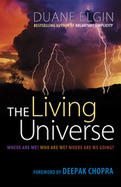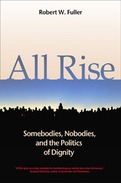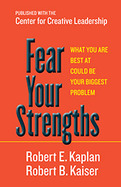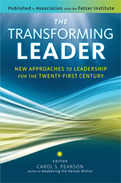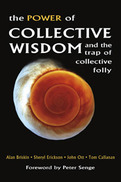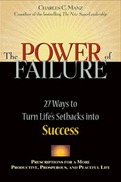2009
2006
- By the author of the bestselling Somebodies and Nobodies: Overcoming the Abuse of Rank
- Argues that rankism--abuse of the power that comes with superior rank--does serious damage to our private relationships and public institutions
- Details how to design social institutions that overcome rankism and protect human dignity
- Learn more at www.BreakingRanks.net
2013
This book takes on the "play to your strengths" fad to show how your strengths can actually betray you.
Once you’ve discovered your strengths, you need to discover something else: your strengths can work against you. Many leaders know this on some intuitive level, and they see it in others. But they don’t see it as clearly in themselves. Mainly, they think of leadership development as working on their weaknesses. No wonder. The tools used to assess managers are not equipped to pick up on overplayed strengths—when more is not better. Nationally recognized leadership experts Bob Kaplan and Rob Kaiser have conducted thousands of assessments of senior executives designed to determine when their strengths serve them well—versus betray them. In this groundbreaking book, they draw on their data and practical experience to identify four fundamental leadership qualities, each positive in and of itself but each of which, if overemphasized, can seriously compromise your effectiveness. Most leaders, they’ve found, are “lopsided”—they favor certain qualities to the exclusion of others without realizing it. The trick is to keep all four in balance. Fear Your Strengths provides tools to help you become aware of your leadership leanings and excesses and provides insights for combatting the mindset that encourages them. It offers a practical psychology of leadership, a better way for leaders to calibrate their performance so that you can make sure your strengths don’t overpower you but rather move you—and your organization—forward.
Outlines a new leadership approach tailored to the realities of the 21st Century.
No organizational leaders can succeed in today’s fast evolving and highly connected world on their own. To succeed, today’s leaders must not only optimize all their own faculties—mental sharpness, emotional depth, imagination, and creativity—but also utilize the full capacities of those around them in a collaborative and creative manner. The prestigious contributors to this volume draw on psychology, sociology, neuroscience, social networking theory, organizational change theory, myths and traditions, and actual experiences to discover how leaders today achieve transformational results. The Transforming Leader offers an overview of what transformational leadership is, how it works, and how it is evolving. In doing so it reframes the challenge of leading in today’s interdependent, unpredictable world.-
Outlines a new leadership approach tailored to the realities of the twenty-first century
-
Features chapters by such leading authors as Matthew Fox, Diana Whitney, and Alan Briskin
-
Edited and annotated by the author of the bestselling The Hero Within
The traditional model of the heroic leader single-handedly piloting the organization was always something of a myth, but it is especially unrealistic now. We live in a complex, fast-evolving, highly connected world. There is simply too much for a single person to keep track of or to address successfully. Leaders today must not only optimize all their own facultiesmind, body, and spiritthey must harvest the full capacities of those around them.
To discover what leadership models are working now, the prestigious Fetzer Institute, along with the University of Marylands School of Public Policy, and the International Leadership Association, brought together an impressive, interdisciplinary group of scholars and practitioners. The group drew on psychology, sociology, neuroscience, organizational change theory, myths and wisdom traditions, social networking theory, and the actual experiences of successful leaders to discover how leaders today achieve transformational results.
The first part of the book offers an overview of what transformational leadership is, how it works, and how it is evolving. The second part shows readers how to increase cognitive complexity, link up their conscious and unconscious minds, and lead in ways that connect mind, heart, and spirit. The third part describes ways of leading groups to harvest collective wisdom and promote coordinated performance in the service of transformational ends. The conclusion explores how transformational communication can anchor new learnings so that they become habitual.
Overall, The Transforming Leader reframes the challenge of leading in todays interdependent, unpredictable world. Its message is that if we update our thinking, enhance the quality of our being, deepen our sense of relatedness with the ecology of our natural and social worlds, and practice transformational communication, things no longer have to be so hard.
• An inspired and practical approach to developing the innate power of groups to make wise, compassionate, and creative decisions
• Based on nine years of research involving scores of participants
• Includes real-life examples and specific practices to help readers understand and cultivate collective wisdom and avoid collective folly
If we are to disentangle the extraordinary challenges that we face today in organizations, communities, and nations we must transcend our divisions and develop solutions together. But what enables us to collectively make wise choices and sound judgments instead of splintering apart?
When human beings gather together, a depth of awareness and insight, a transcendent knowing, becomes available. Based on nine years of research The Power of Collective Wisdom shows how we can tap into the extraordinary cocreative potential that exists in every group. Collective wisdom is elusive and unpredictable – it can’t be willed into being, but the authors describe six commitments people can adopt that will increase the likelihood of its appearing. Stories and historical examples throughout serve to illuminate and illustrate how collective wisdom has emerged in a range of settings and through the lives and traditions of varied cultures. Equally important, the authors describe how to recognize the pitfalls of polarization or false agreement, either of which can lead to collective folly – a phenomenon with which recent history has made us all too familiar. And they offer a set of practices to help readers maintain the key lessons of the book.
The Power of Collective Wisdom is a foundational book for an emerging field of study and practice relevant to everyone seeking more effective and satisfying ways of working with others.
2002
The fear of failure is enough to stop many people in their tracks and lead them to give up without even trying. But best selling author Charles Manz shows that failure is an essential component of personal and professional success. Using real-life examples and stories, Manz shows that:
- Challenges are disguised opportunities
- Competition spurs positive change
- Setbacks catalyze creative coping skills, and
- Collaboration with failure can be an ongoing part of being successful
The Power of Failure offers both inspiration and advice on how failure can provide us with the foundation for long-term success. This book is loaded with inspiring real-life examples and stories, and filled with practical strategies that you can put to use immediately to fulfill your dreams.


